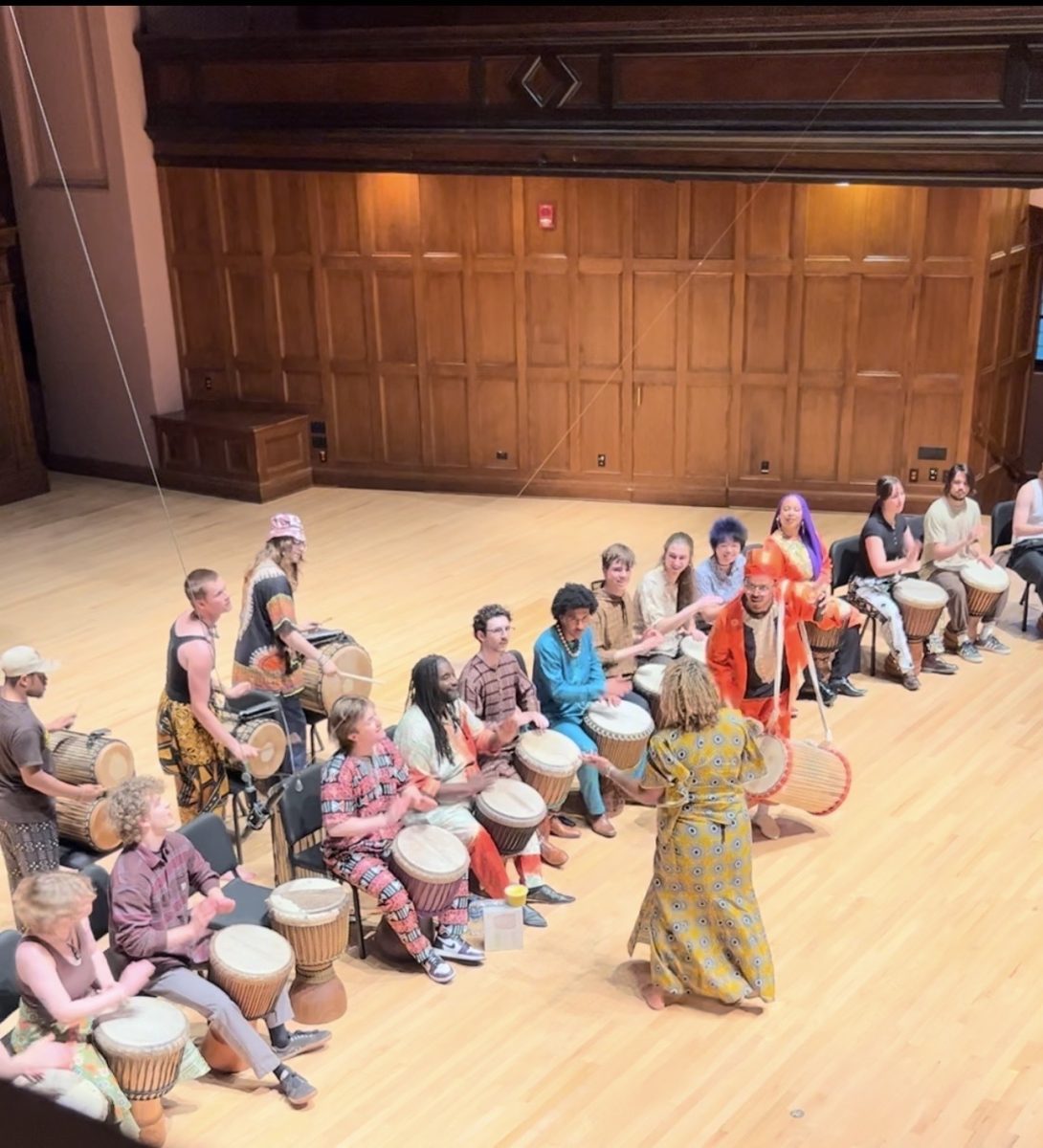In 1837, seven Oberlin students petitioned faculty on behalf of sacred music and created Oberlin’s Musical Union, one if the first choirs composed of both college students and community members. Directed by George Nelson Allen, group membership quickly swelled. George Friederic Handel’s Messiah debuted in Oberlin in 1849, and by 1878 it had become a tradition. In the following 40 years, Oberlin’s Musical Union performed the Messiah sing-along over 50 times. The Musical Union remains today, nearly two centuries later, and still finds joy in playing Messiah. Conducted by Associate Professor of Conducting and Director of Vocal Ensembles Gregory Ristow, OC ’01, the Musical Union, Chamber Orchestra, and College Choir will perform the oratorio Sunday, Dec. 10 at 2:30 p.m.
“This is a piece that, in many ways, started the giant community choir tradition,” Ristow said. “So Handel dies, and by 1784, we have a record of a big Handel celebration in London, where they had over 500 people participating, orchestra and choir. That was only [25] years after Handel’s death.”
Preceding the Sunday performance, Professor of Viola and Strings Division Director Peter Slowik will conduct the chorus for Oberlin’s annual Messiah sing-along at 1:30 p.m. Slowik helped to reinstate this tradition in 2008 after a it paused in the ’70s.
“I started grad school in 2001, and from then until I started teaching here in 2015, I did a Messiah performance every year, whether that was conducting or singing, often both in the same year,” Ristow said. “I haven’t been involved in a Messiah performance since December 2014. It’s exciting for me to come back to it and to do a full performance of it.”
In 1741, Handel composed Messiah in just one month. Handel lived in London at the time; however, spurned by English audiences in the previous season, he brought his unconventional piece to Dublin. His premiere proved a crowd-pleaser. Although audiences pit Handel’s music in a popularity contest against the other prolific Western composer of the time, Johann Sebastian Bach, Messiah soon became a holiday tradition across Europe. Due to the subject matter involving the resurrection of Jesus Christ, Handel intended Messiah to be played during the Easter season, but Christmas recitals yielded greater profits. Handel’s own admiration for the piece is quite apparent. Similar to Oberlin’s historic Messiah fundraisers, he hosted an annual charity concert for London’s Foundling Hospital, which featured the piece every year. A week before his death in 1759, Handel insisted on attending a performance of Messiah, blind and failing in health.
“When one thinks about the big chunks of the canon, like Beethoven’s 5th symphony or Messiah, something everybody knows, it’s this big monolith and it has to be approached with, oh, we’re doing this wonderful big thing,” Slowik said. “In fact, the oratorios of which Messiah is one would have been popular like a Taylor Swift concert back in the day.”
Slowik, who has been playing Messiah since he was 14 years old, still finds hidden meaning within the music. He emphasizes the playful quality of Handel’s composition, and admires its intense spirit. He encouraged audience members to pay close attention this Sunday, as he described jokes buried in the text and musical references to past motifs.
“It was one of the, if not the first, gigs I ever played, and I was 14 years old,” Slowik said. “I went with my older brother. We played a Christmas Eve thing in this Black church on the South Side of Chicago. The energy of the worship and people singing blew me out of the water. I’ve probably played it or conducted it 60, 70 times since then. So, it’s an amazing piece. It’s like reading a book or watching your favorite movie — every time you do it, you see more.”
Over the years, interpretations of Handel’s Messiah have evolved. The movement of historically informed performance asks how this piece would sound in its original context. Scholars have devoted entire careers in pursuit of answering this question, developing imaginative methods such as recreating traditional instruments. While the movement has its fair share of critics, informative results have altered the way we perform classical music.
“I think about the first Messiah I ever sang in 2001 versus now, and we’ve learned so much from historically informed performance,” Ristow said. “Tempos, for instance, are much sprightlier than what I grew up hearing. [The concert], if all goes well, it will be about two hours and ten minutes of music. Whereas, if you listen to those old recordings, it’s close to three hours of music.”
The tradition of choral singing owes some credit to Handel’s Messiah. Oberlin’s Musical Union also deserves acknowledgement for popularizing the practice, as one of the first non-church based college-community choirs. Everyone is encouraged to share in the rich history this Sunday, joining voices in song before basking in the shimmering melodies.
“Roughly one out of six adults in America sings in a choir,” Ristow said. “And it makes sense, right? I think singing is the most universal of the arts. We all have a voice.”




